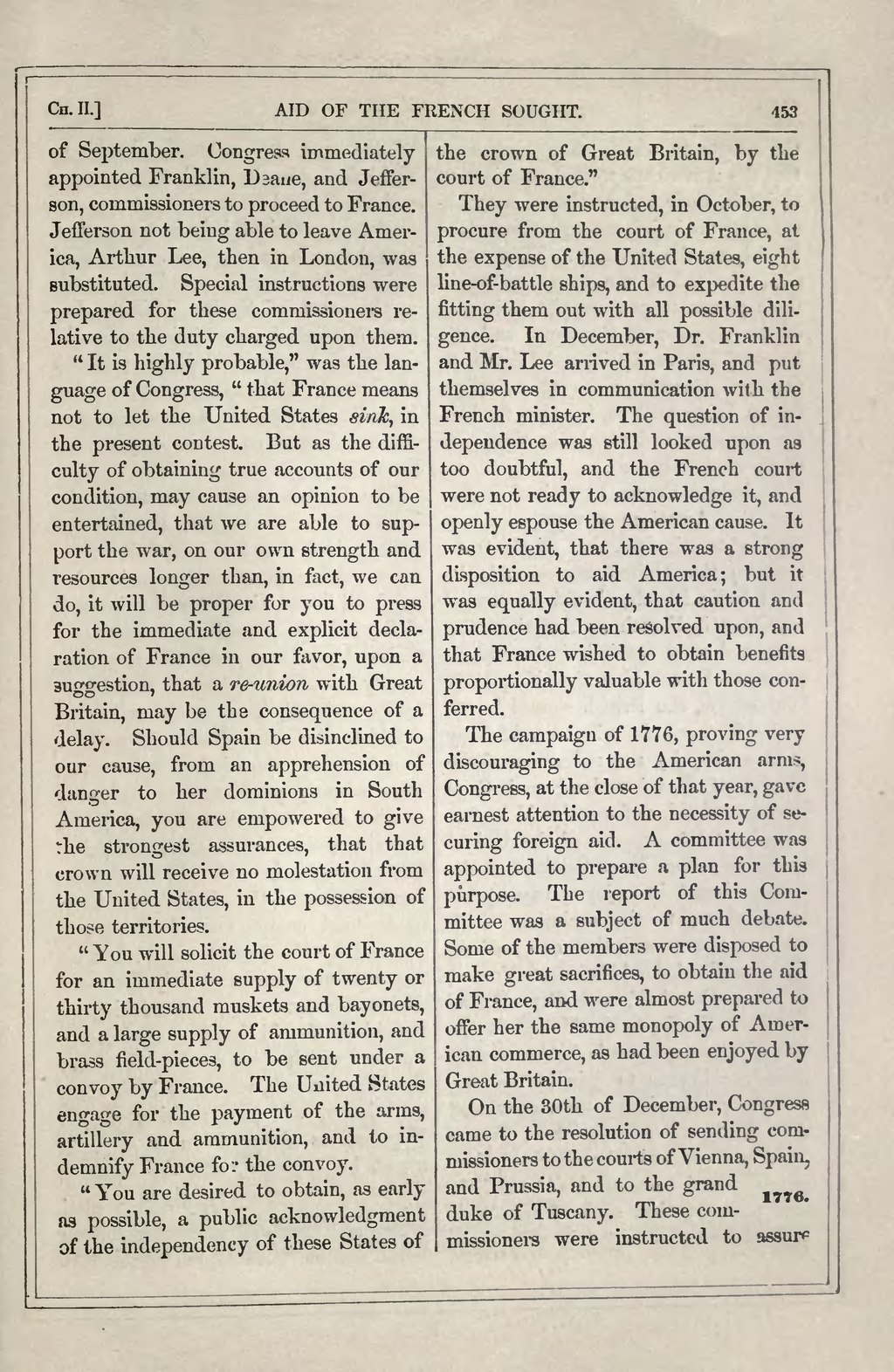of September. Congress immediately appointed Franklin, Deane, and Jefferson, commissioners to proceed to France. Jefferson not being able to leave America, Arthur Lee, then in London, was substituted. Special instructions were prepared for these commissioners relative to the duty charged upon them.
"It is highly probable," was the language of Congress, " that France means not to let the United States sink, in the present contest. But as the difficulty of obtaining true accounts of our condition, may cause an opinion to be entertained, that we are able to support the war, on our own strength and resources longer than, in fact, we can do, it will be proper for you to press for the immediate and explicit declaration of France in our favor, upon a suggestion, that a re-union with Great Britain, may be the consequence of a delay. Should Spain be disinclined to our cause, from an apprehension of danger to her dominions in South America, you are empowered to give the strongest assurances, that that crown will receive no molestation from the United States, in the possession of those territories.
"You will solicit the court of France for an immediate supply of twenty or thirty thousand muskets and bayonets, and a large supply of ammunition, and brass field-pieces, to be sent under a convoy by France. The United States engage for the payment of the arms, artillery and ammunition, and to indemnify France for the convoy.
"You are desired to obtain, as early as possible, a public acknowledgment of the independency of these States of the crown of Great Britain, by the court of France."
They were instructed, in October, to procure from the court of France, at the expense of the United States, eight line-of-battle ships, and to expedite the fitting them out with all possible diligence. In December, Dr. Franklin and Mr. Lee arrived in Paris, and put themselves in communication with the French minister. The question of independence was still looked upon as too doubtful, and the French court were not ready to acknowledge it, and openly espouse the American cause. It was evident, that there was a strong disposition to aid America; but it was equally evident, that caution and prudence had been resolved upon, and that France wished to obtain benefits proportionally valuable with those conferred.
The campaign of 1776, proving very discouraging to the American arms, Congress, at the close of that year, gave earnest attention to the necessity of securing foreign aid. A committee was appointed to prepare a plan for this purpose. The report of this Committee was a subject of much debate. Some of the members were disposed to make great sacrifices, to obtain the aid of France, and were almost prepared to offer her the same monopoly of American commerce, as had been enjoyed by Great Britain.
On the 30th of December, Congress came to the resolution of sending commissioners to the courts of Vienna, Spain, and Prussia, and to the grand duke of Tuscany. These commissioners were instructed to assure
